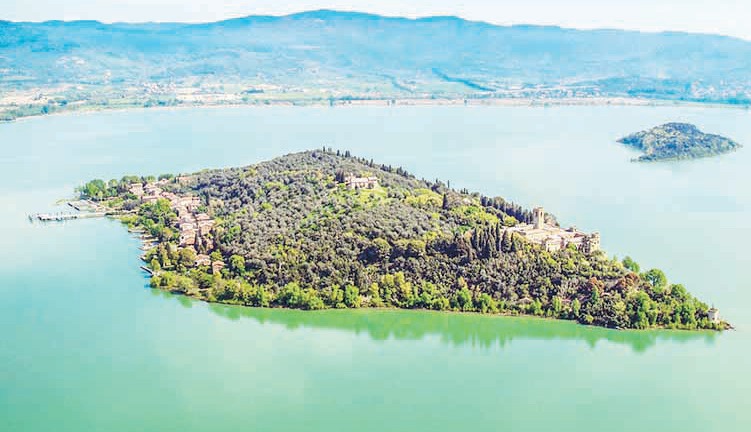We shall never know who the truly indigenous Basoga on the mainland of the area that Prince Byaruhanga Ndahura, of Bunyoro Kitara, named Busoga in 1233. Those indigenous gave him a girl who bore him a son he installed as the first King of the Basoga. However, we know that if you want to know the ancient Basoga, then you have to seek them on the ecological islands of Lake Victoria. For example, the ecological Buvuma Island, which is divided into two parts – the Busoga part and the Buganda part – could give us a clue about the ancient indigenous Busoga.
Some Clans of Busoga, such as Mulawa Clan, had their original presence on the Busoga part of the ecological island of Buvuma. Some of the members of the Mulawa Clan migrated to mainland Busoga some 800 years ago. We don’t know what triggered their migration to mainland Busoga. It could have been a pest invasion, population explosion or a catastrophe. What we know is that the members of the Clan were skilled designers of boats and good fishermen who used to fish like the bird called Kingfisher. They must have found indigenous Basoga when they arrived on mainland Busoga. In any case, they had been trading with them in things like crafts. That was a few years after Prince Byaruhanga Ndahura visited Busoga, established hereditary chiefdoms and an Igaga dynasty at Nnenda Hill in Busambira, Kigulu. Igaga was his clan.
Mulawa Clan was not the only one that migrated to Mainland Busoga. Many Clans did. Being shaped like a basin full of water, rich in numerous resources and with plenty of arable land, mainland Busoga attracted people from all corners and directions. Most Clans of Busoga are actually migrant Clans. Many came from Bukedi, including the Musoko Clan to which ancient Zibondo, Nkono and Nagwere belonged; and the Iwumbwe Clan, which came from Bunyhole belonged. However, we frequently hear that Basoga came from Bunyoro. No; not all Basoga trace their origins in Bunyoro.
Those who came from Bunyoro were predominantly those who belonged to the Igaga Clan and the Ngobi Clan. So, most of the nearly 300 Clans of Busoga are not indigenous to Busoga. This could explain why the Basoga do not easily agree on anything. It also explains why it is easier for foreigners to penetrate, dominate and exploit Busoga, and for the Basoga to relate to foreigners more harmoniously than to themselves. They can undermine more than protect themselves and their common goods and common interests.
Because the Basoga are easier to divide than unite, Busoga has been a perennial loser in terns of development, transformation and progress in Musevenite times. It has lost opportunities, resources, properties and land to foreigners since precolonial times. The precolonial colonizers of Busoga – Buganda and Bunyoro – exploited Busoga to their advantage when the indigenous Basoga were not united and only depended on shifting agriculture and hunting only for food. The precolonial colonizers stole ivory, leopard skins and gold and traded them with other peoples. The Baganda colonizers even took the beautiful Basoga women.
It was during the British colonial times that Busoga lost most. The first thing the colonialists destroyed was the local unity of Busoga. Through establishing chiefdoms ruled mainly by members of the Ngobi Clan to which
he did not belong, Nyoro Prince Byaruhanga Ndahura managed to create one Busoga, under the Igaga Dynasty to which he belonged. When the British colonialists arrived in Busoga towards the end of the 19th Century, they revolved to destroy any king of dynasty and unity in the East that did not serve their imperial interests.
They destroyed the power and authority at Nnenda Hill that Byaruhanga Ndahura had left behind. They transferred the Parliament of Busoga (Lukiiko) from Nnenda Hill to Butaleja, which was in Bunyhole outside Busoga then. They transferred all power and authority from Nnenda Hill to Butaleja and vested it in a foreigner and militarist, Semei Kakungulu from Koki. He was called President, the first one south of the Sahara Desert. He presided over the Busoga Lukiiko. This meant that the effective ruler of Busoga under the imperialists was Semei Kakungulu, who paid no allegiance to Nnenda but to the colonialists. The Igaga Dynasty diminished in stature and influence. What broke the administrative threads of the Igaga Dynasty was when the colonialists, through the agency of Semei Kakungulu, incorporated the chiefdoms created by Byaruhanga Ndahura and that had served as the cornerstone of the administration of the Iganga dynasty, into its new colonial administration in Busoga.
The colonialists did not end there. They expanded the chiefdom chain from the original 6, which Byaruhanga Ndahura had established (that is, Bugabula, Bugweri, Bukooli, Busiiki, Buzaaya and Luuka). Kigulu County would also have been a hereditary Chiefdom under Igaga Dynasty. However, Byaruhanga Ndahura did not want to have two bulls in the same kraal: a King on Nnenda Hill and a hereditary chief in Kigulu county
The writer (Prof. Oweyegha Afunaduula) is a retired university is a retired university lecturer and environmentalist




